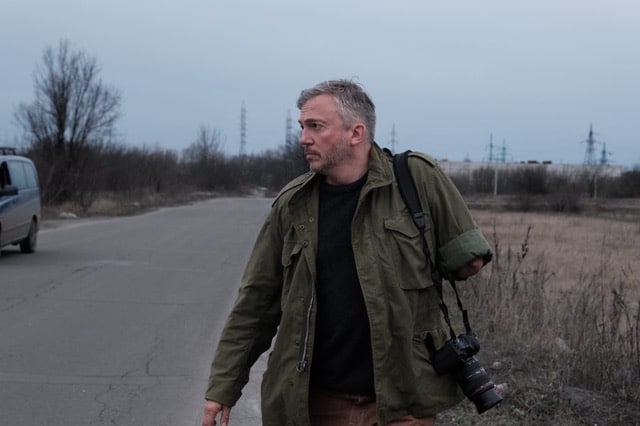Giles Duley of the United Kingdom is a photographer, writer, storyteller and CEO of the charity Legacy of War Foundation. In 2022, he was designated as the first-ever United Nations Global Advocate for persons with disabilities in conflict and peacebuilding situations.
Over the last year, he has travelled to Gaza, Ukraine, and Somalia, focusing on the stories of people injured in conflict. As we mark the International Day for Mine Awareness and Assistance in Mine Action on 4 April, UNRIC spoke to Mr Duley about the importance of driving change to ensure persons with injuries and disabilities in conflict can rebuild their lives.
Your work has focused on the long-term humanitarian impact of conflict and seeks to drive change for persons with disabilities. Can you share your story which has led you to work on this?
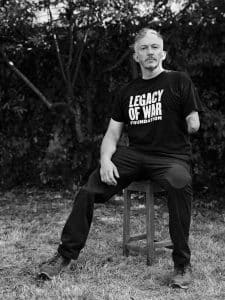
I set out in the early nineties documenting the impact of war. Wars can be generational and people who are injured will carry that legacy for their whole lifetime, and I wanted to tell those stories. I was injured myself in Afghanistan in 2011 in what I would describe as the worst day in the office you could imagine. I was not a victim of a landmine. I was there by choice. I was doing my job. I spent a year in hospital. I lost both my legs and my left arm and had 37 operations just to save my life. It was touch and go for most of that year but luckily, 18 months later, I was back in Afghanistan carrying on my work. My work did not change. I was injured because of my passion for this work and because I wanted to tell the stories of civilians injured in conflict. The only thing that changed is that I had quite literally walked in the footsteps of the people whose stories I tell.
What are your priorities as United Nations Global Advocate for persons with disabilities in conflict and peacebuilding situations?
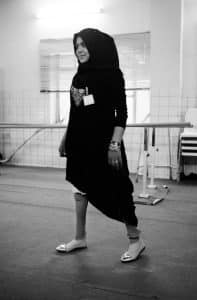
A few years ago, I was in Cambodia and met a former child soldier who had been injured by a landmine and lost both his legs above the knee. He had never really been given support and was now in his late forties. He was being looked after by his sister who was also living in poverty. He showed me three dog baskets by the side of his house and pointed to the biggest one and said: ‘that’s where I sleep’. He had very similar injuries to my own. He was certainly as determined as I am. He was as smart as I am, as resilient as I am. There was no difference between us apart from opportunity. I have been given some of the best rehabilitation and prosthetic support. I live a full life. I work as a chef. I travel the world. I live out my passions. I am completely independent. This man was living like a dog. That really is my remit in this role, that everybody should be given the chance to live a full life.
I am still living under the shadow of what happened to me 12 years ago. Nobody says ‘this guy is covering conflicts as an award-winning photographer. He is the CEO of one of the fastest-growing international NGOs and he is also a professional chef.’ No, they would define me by what happened to me 12 years ago. In this role, I want to be a role model for people who have been injured to see that you can live a full life and not live under the shadow of your trauma.
What are some of the changes you would like to see for persons injured in conflict and with disabilities?
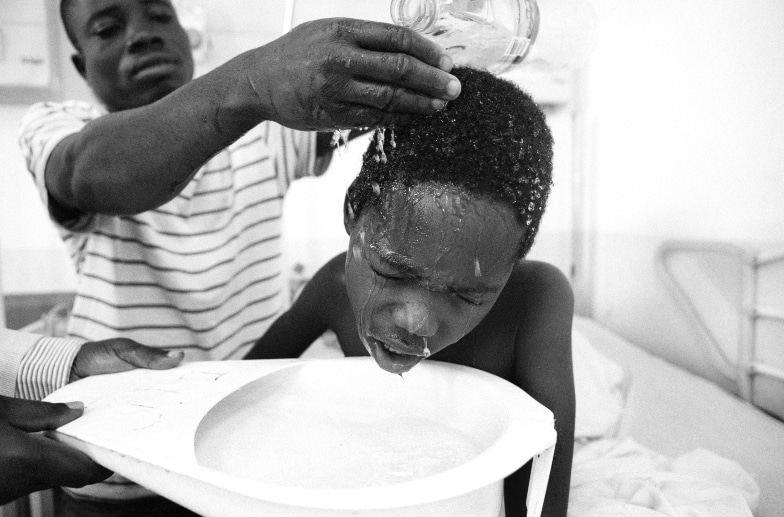
It is about giving people injured in conflict and with disabilities the right rehabilitation and prosthetic needs to live life to the full. What I have seen time and time again is people’s lives have been saved, but they have not been given the support to regain their independence. There is no point saving a life if we do not give a life back. This is simply about finding the funding to be able to support people to rebuild their lives.
People with injuries are also left out of the conversation in the peace building process. They must be involved in the process.
What is your message for the International Day for Mine Awareness and Assistance in Mine Action?
We are in a really challenging time. The proliferation of Improvised Explosive Devices (IEDs) and landmines is probably the worst it has been for a couple of decades. The victims of landmines are often people living rural lives, people living in poverty, collecting firewood, or doing manual jobs. We often talk about the clearance of landmines as opposed to the result of those landmines. It is not just about clearing areas for construction. It is about saving lives.
Can you share a particular moment which struck you during your work as a photographer?
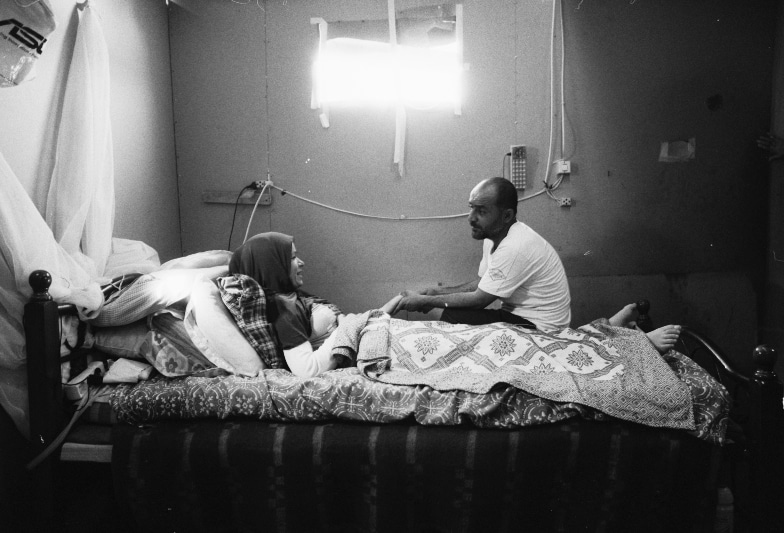
Photography for me is about building relationships. There was a woman called Kholoud who was paralysed by a sniper’s bullet in Syria in 2014. When I met her, she was living in a homemade tent in Lebanon. The tent was made of cardboard, plastic, posters ripped down from billboards. I photographed her and two years later, I went back and found she was in the same situation. That is why I set up my own NGO because I said from this point onwards, I can never leave somebody like that and think I have done my job just because I took a photograph.
The photograph is of Kholoud lying in the bed and her husband, Jamal, holding her hand. It was not a photograph of a refugee. It was not a photograph of a woman with a disability. It was a photograph of a couple in love. I do not photograph war. I photograph people living in conflict situations, but actually I photograph relationships and love. We focus on war, on violence but, what is it that we are supporting? We are supporting families, relationships, love, and community. That is really where my focus is.
Find out more about the United Nations Mine Action Service (UNMAS).

